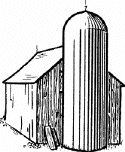
|
|||||||||||||||||||||||||||||||||||||||||||||||||||||
|
What I meant by 'breaking out' First, thanks for all the interest in today's earlier piece. It's getting a lot of traffic and comments, all of which have been interesting. We've heard from lots of users and two Twitter board members. A commenter named Jonathan asked what I meant by breaking out of Twitter. Here's what I said. Thanks for asking -- I was wondering when someone would.
It might mean lots of little Twitters. I'm starting one here on scripting.com, and in the first few hours of use it's already interesting. It wouldn't in any way be a replacement for Twitter. But it offers an alternative. Sort of like the difference between a blog and a big website, when blogs were just booting up in 1999 or so. Or it could mean that Twitter voluntarily breaks itself up. Again I'm not sure what that means, but it could mean that Twitter stops having anything at all to do with the content of Twitter. Or it could split into two, CelebrityLand and LandOfThePeople. I don't see any of that as likely, but if I were part of their team, I would encourage them to look at doing to themselves what the competition is likely to do it. That can work out better, because then they get to do it on their own terms instead of the rougher treatment a competitor might offer. Right now though, if Facebook offered a "lite" user interface that did just what Twitter does, plus a few nice extras, it would rule. Or if Google did, they would probably suck a lot of the energy out of Twitter. Not sure who else could do it. BTW, to people who think Twitter already has too big a head start, I'm not so sure. Twitter didn't exist to promote Twitter. But it will exist for Twitter 2.0. So whoever does it will have a superior word of mouth network already built, by Twitter. I saw this effect first hand by being here for the rise of blogging and then the rise of podcasting. The latter grew much more quickly because we had blogs to promote podcasting with. The slow part was the building of the network, once it exists, new ones that build on it boot up much more quickly. Why it's time to break out of Twitter
There was an event a few weeks back that convinced me that it's time to break out, like jailbreaking an iPhone. I don't like the relationship Twitter-the-service has with Twitter-the-company. Yesterday I was talking with a Twitter board member, Bijan Sabet, someone who is becoming a personal friend, and said that it was good that the phone company wasn't part of the conversation. That's exactly how I feel about the company he is on the board of. Yet they are very much part of the conversation. I pour a lot of effort into Twitter, and while I wasn't in the top tier of users, I was solidly in the second tier. I wasn't doing the things you have to do to get the most followers, or I didn't have a powerful media presence like Leo or Shaq to get me up there. People like Scoble, Guy Kawasaki, Jason Calacanis all viewed being at the top as a competitive thing, so they did what it took. Me, I just poured a lot of energy and creativity into it, and got the number of followers that comes from doing that. It's now approaching 20,000, which I am proud of, but it's not very much compared to the numbers of some people who did nothing other than be friends of Evan Williams to get hundreds of thousands of followers. I first noticed this when I was on Ana Marie Cox's page on Twitter. All of a sudden she went from 3 or 4 thousand to over 60,000 in less than a week. She had no idea why. A thread opened, there were theories that it was a spam attack, but then Williams jumped in and said it was because she was on the Suggested Users page. The LA Times ran a story on it, and then pretty much everyone knew. Scoble and Leo were openly angry, understandably so. These guys worked really hard to be at the top, I watched them do it, and now they're not even close to the top. (BTW, Cox is no longer in the Suggested Users list.) I don't have a quarrel with the people who got the boost, I think it's pretty clear none of them asked for it. I do think the company should have done this much more carefully. Now there's no way to put the toothpaste back in the tube. And the people who got the push have a problem if they are members of the press, because this gift they got from Twitter is worth money. It might be worth a lot of money. If one of them posts a pointer on a Twitter account it's going to get a lot of flow. And what if a reporter were critical of Twitter in a piece she wrote, would Twitter revoke her status? TechCrunch uses their Twitter page to point to articles on their site, and every page has ads on it. So the gift from Twitter is worth dollars to them. It's hard to imagine them pulling punches when it comes to reviewing the company. But are they likely to be more kindly disposed to the company? It's hard to imagine when they're delivering so much free flow that doesn't earn them a warm space in your heart. And what about Scoble, Leo, Guy and Jason? Did they say something to offend Twitter? Possibly. I can name one thing for each of them that the guys at Twitter probably don't like. But why should I have to even think about this? Until they tilted the table so heavily in favor of these people, I didn't. But it always bothered me that they could. Why does the NY Times get the gift but the LA Times doesn't? Why is Tim O'Reilly on the list, but not Jay Rosen? Why TechCrunch and not GigaOm, PaidContent, SiliconAlley, ReadWriteWeb, Mashable, VentureBeat, etc etc.
Bijan says that Twitter is the little guy, but to me they look big -- huge -- when they have the power to move people up the ladder so quickly, and introduce doubt about their relationship with individual users. When being in favor with Ev means so much. That's screwing the whole thing up. Bottom-line: This isn't the way the Internet works. The guys at Twitter should know this. I think they're living in a bubble, and creating one at the same time. No one likes someone who pops the bubble while it's still building. So be it. We need to get that power out of their hands, or they need to disclaim it. They're such a small guy, it's really puzzling why they would do something that alienates so many. Most people won't say it, for the obvious reason that their business interests prevent them from. Doesn't mean it shouldn't be said. |
"The protoblogger." - NY Times.
"The father of modern-day content distribution." - PC World.
One of BusinessWeek's 25 Most Influential People on the Web. "Helped popularize blogging, podcasting and RSS." - Time.
"The father of blogging and RSS." - BBC.
"RSS was born in 1997 out of the confluence of Dave Winer's 'Really Simple Syndication' technology, used to push out blog updates, and Netscape's 'Rich Site Summary', which allowed users to create custom Netscape home pages with regularly updated data flows." - Tim O'Reilly.
My most recent trivia on Twitter. On This Day In: 2008 2007 2006 2005 2004 2003 2002 2001 2000 1999 1998. |
||||||||||||||||||||||||||||||||||||||||||||||||||||
|
© Copyright 1997-2009 Dave Winer. Previous / Next |
|||||||||||||||||||||||||||||||||||||||||||||||||||||
 I don't know exactly what it means. If a real competitor came along that would create one possible answer, some of us would move there. Probably everyone would instantly get an account, if it were done right, some large number would stay there. If it had features that Twitter didn't have that were high value then it might suck a lot of the life out of Twitter.
I don't know exactly what it means. If a real competitor came along that would create one possible answer, some of us would move there. Probably everyone would instantly get an account, if it were done right, some large number would stay there. If it had features that Twitter didn't have that were high value then it might suck a lot of the life out of Twitter. First, so there are no misunderstandings, I am using Twitter, I will continue to use Twitter and I will recommend Twitter to others, as I have been for 2 or so years. This is not me slamming the door on the way out, something I dislike intensely. If you're leaving just go. But I'm not leaving.
First, so there are no misunderstandings, I am using Twitter, I will continue to use Twitter and I will recommend Twitter to others, as I have been for 2 or so years. This is not me slamming the door on the way out, something I dislike intensely. If you're leaving just go. But I'm not leaving. Think about it this way -- do you know who wrote Apache or PHP? Do any of them have the power to deliver so much flow to an installation of their software? Imho, that's exactly the relationship Twitter should have with its users. Or the phone company and users of phones -- they shouldn't jump into a conversation and say (for example) "We know someone really cool you would probably like to talk to. We're connecting you to them now."
Think about it this way -- do you know who wrote Apache or PHP? Do any of them have the power to deliver so much flow to an installation of their software? Imho, that's exactly the relationship Twitter should have with its users. Or the phone company and users of phones -- they shouldn't jump into a conversation and say (for example) "We know someone really cool you would probably like to talk to. We're connecting you to them now."

